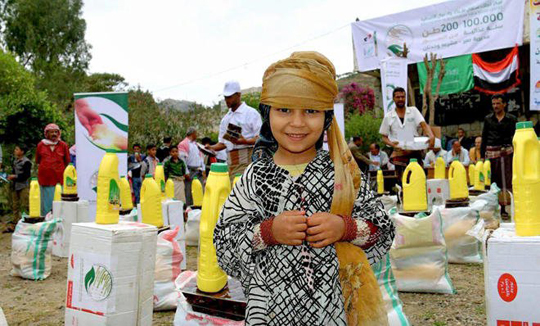Jeddah, Jan 14: The King Salman Center for Relief and Humanitarian Aid (KSRelief) has provided humanitarian and relief work amounting to more than $680 million to 33 countries on four continents via 172 projects since King Salman announced its establishment in May 2016.

KSRelief provided operational programs in the field of food security; accommodation sand camp management and coordination; education; protection and early recovery programs; health and nutrition; water and environmental sanitation; emergency communications and logistic support; and coordination of humanitarian operations.
King Salman said in his opening speech at the inauguration of KSRelief that its establishment stems “from the teachings of our Islamic religion, which directs us to help the needy and maintain the life of the human being and his dignity and health, and in extension to the humanitarian role of the Kingdom of Saudi Arabia and its universal vocation in this field.”
He said KSRelief “will be dedicated to humanitarian relief, and be a leading international center for disaster-stricken countries,” including Yemen.
The number of housing and food security projects, and programs of management and coordination of camps, amounted to 94, worth $347 million with 23.5 million beneficiaries.
The number of projects in the field of education, protection and early recovery programs was 15, worth almost $76 million with almost 4 million beneficiaries.
In the health, nutrition, water and environmental sanitation fields, KSRelief provided 54 projects worth $209 million with 25.6 million beneficiaries.
In the fields of emergency communications, logistics, support and coordination of humanitarian operations, the center devoted nine projects with a total value of almost $49 million with almost 16,000 beneficiaries.
Yemen was one of the greatest beneficiaries, where the center provided 110 projects worth a total of almost $562 million with the participation of 79 partners.
The number of projects in the field of food security, accommodation and camp coordination reached 43, covering all areas of Yemen, with a value of over $236 million and 19.6 million beneficiaries.
In the education, protection and early recovery fields, the number of projects implemented in Yemen was 15, worth $75.6 million and with almost 4 million beneficiaries.
Projects in health, nutrition, water and environmental sanitation carried out in Yemen amounted to 44, worth a total of over $201 million with 24.5 million beneficiaries.
As for logistics, support and coordination of humanitarian operations and emergency communications, the number of projects implemented in Yemen was eight, worth almost $49 million with over 15,000 beneficiaries.
KSRelief has been commended by heads of state, community leaders, and international and regional organizations working in relief and humanitarian services, in addition to visitors of the center.




Comments
Add new comment